This post may contain affiliate links and Corporette® may earn commissions for purchases made through links in this post. As an Amazon Associate, I earn from qualifying purchases.
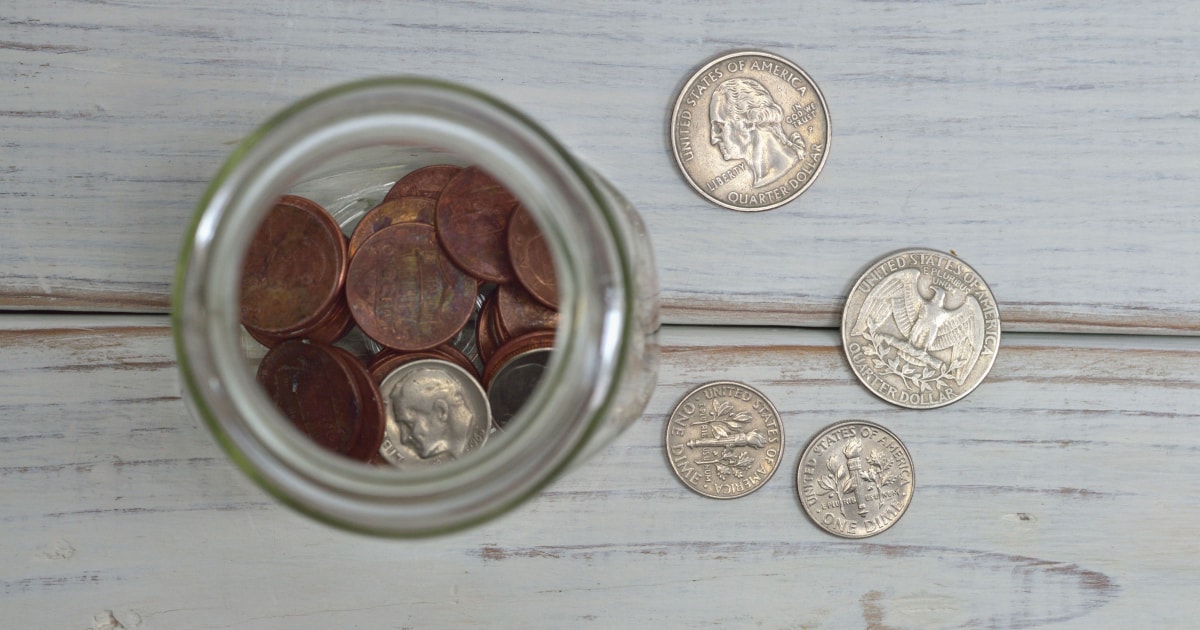
We shared some tips on how to take advantage of a bear market, but we haven’t talked about the flip side of that, changing your spending in a recession, in far too long.
What ARE you doing these days, and what are your best tips on how to change your spending in a recession? Are you worried for your job and your cash flow?
Because we couldn’t just have a recession but had to have a recession with a pandemic (actually saying we may be heading into a global depression), are you worried about supply chain/scarcity issues for certain things, and thus buying more now with hopes that it will last you a long while? Are you reacquainting yourself with recipes using dried beans or other budget, shelf-stable items? (If so, please share the best ones with us!)
There are no right answers here — but let’s start the discussion.
For my $.02, I’m a bit worried! I have an emergency fund for the family as well as one for the business, so we should be fine for a while, but it feels like we’re on the precipice of something bad here. I’ve already started thinking, HEY, maybe the $2 pasta sauce will be just as fine as the $7 one — and we’re definitely looking up recipes that use dried beans.
I’ve also started looking at things like bacon as flavoring for bigger dishes instead of a side dish or main protein. I am hopeful that we won’t need to touch our investment accounts or retirement accounts, and hopeful that we can keep contributing to the kids’ 529s, our retirement accounts, and a teensy bit of automatic investing — but we’ll see (whee!).
Random attempt at calming that may be totally unnecessary for anyone but me: This is the third recession/dip I’ve seen as an adult (my second as a blogger, which is truly crazy), and I vaguely remember my father being freaked out about the 1987 recession. These are cyclical and part of life. We’ll all get through this together. Reach out to your loved ones if you need help; help those you can. As Douglas Adams wisely said: Don’t panic. For those of you who’ve been through this before, please chime in!
All right, ladies, let’s hear from you — what’s your situation right now? How are you changing your spending during the recession?
Stock photo via Stencil.
Psst: these are some of our favorite financial books for beginners!
These are some of our latest favorite financial books for beginners:
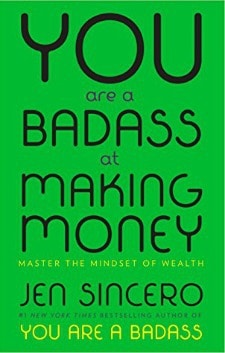
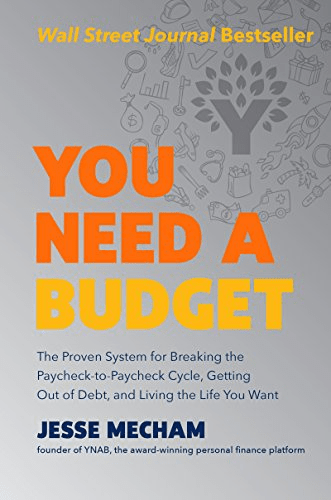
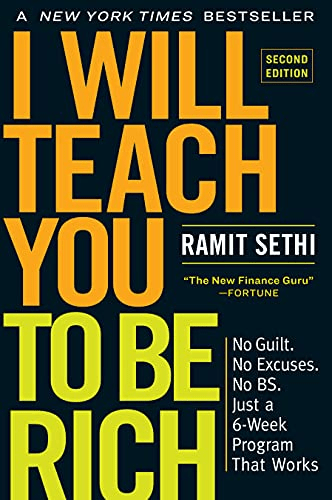
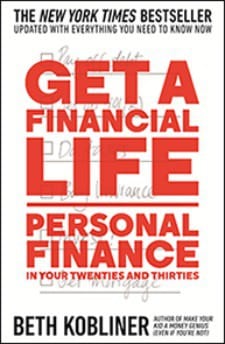
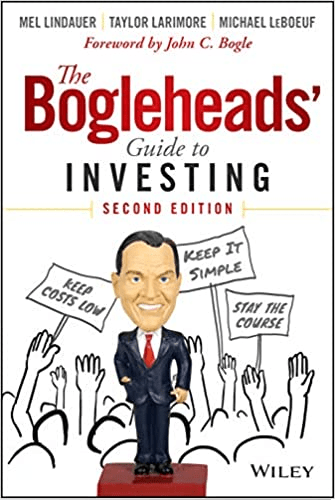

Anonymous
This is also the third recession of my adult life, but this one feels different. During the last two I knew there would always be food and cleaning supplies at the grocery store, that I could eke out a bare-bones existence working retail or food service if necessary, and that I could always move if I had to in order to find a job. This one feels as if it will be more like the Great Depression, when people had to improvise just to stay alive.
I have been front-loading spending on groceries and household items right now on the assumption that essential goods won’t be available for at least several months. Otherwise I have dialed back dramatically on spending, partly because there isn’t nearly as much to spend on. No commuting expenses, gym memberships, restaurant meals, vacations, haircuts, waxing, plays, concerts, work clothes, dry cleaning, extracurriculars for the kids, etc. etc.
Anonymous
I agree with feeling like this will be the Great Depression. I’ve already started using homemade wipes as TP for #1, just to extend my limited supply of toilet paper. A line for free distillery-made bottles of hand sanitizer locally was two blocks long this week!
Anonymous
Did you buy or diy the handmade wipes? Are you just laundering them with everything else?
Anonymous
DIY! Old shirts cut up. Wash normally.
Anon
This is super interesting – I was a kid for ‘08 and while my family didn’t take a major hit, I will always remember the uneasy feeling and have definitely carried that with me to adulthood.
I work in government – so have pretty good job security but also I have never made a lot of money. My savings are decent but not amazing but I’ve never lived an extravagant lifestyle. I’m actually just now at a point where I can take vacations, get somewhat regular pedicures, occasionally splurge on something, etc.
For those of us who were not yet adults in 2008, what should we expect? What sort of changes should we make?
Anon
I graduated from law school in 2010, unemployed due to the recession, so my life was obviously very difficult for a while because I was working all kinds of odd (mostly non-law) jobs to pay the rent, and I was basically constantly applying for “real” jobs. I eventually got a Big Law job 18 months after graduating, and then my life became a pretty normal Big Law lawyer’s life, although I always saved more money than average because of my past struggles.
If I hadn’t been unemployed/underemployed I doubt I would have made many changes to my life. Most of my college friends (we graduated college in ’07, so everyone who went straight into the workforce got jobs) survived without layoffs and the recession didn’t really affect them – obviously 401(k)s took a huge hit, but they rebounded within 5 years and your 401(k) isn’t really something to panic about if you’re young and far from retirement.
In your shoes I would say, unless you expect a layoff, to basically continue living life normally. It’s not a bad idea to put extra money away for a rainy day, but it’s also good to continue your normal spending to stimulate the economy.
anne-on
I started working in 02/03, so thankfully had enough of a work history not to be laid off in the 08 downturn, but friends and family were. For those of us who kept our jobs, expect a LONG period of no real openings if you want to change positions, FIERCE competition for open jobs, a general attitude among employers of ‘take it or leave it’ re: hours/salary/benefits/etc. Expect no raises (or small cost of living raises), minuscule bonuses, smaller teams with more work spread among fewer people, and to pay more out of pocket for your benefits. We also had travel bans and cut waaay back on client spend/conferences for cost cutting reasons until at least 2010 and a lot of conferences never quite went back to the over the top internet/finance events (though in honesty, it was WAY overdue, some of the finance events pre 2008 were fairly obscene).
It was like that until at least 2011-ish as I recall? 2013/2014 was about when I remember people suddenly hiring/promoting again and people moving around.
Anon
I did not find “length of work history” to matter much during 2008. I started working in ’99 and still found that anything that could be cut, was cut. It drastically set back my lifetime earnings, because I had a long gap (filled with freelancing and waitressing, but nothing FTP) and ended up having to accept a job way under my market rate just to get back into the field. I still have not gotten back up where I should be.
Anon
Yeah I actually found the opposite. Younger people generally have lower salaries, so if you want to cut X positions, you can save more money by cutting more senior people.
anne-on
I stated that badly – I was thinking back to being about 4-5 years into the job market and competing with new grads. I (and others!) were willing to take lower salaries just to get in the door/get a job BUT we had much more job experience than a new grad so were a ‘better value’. Hopefully that makes sense.
And I totally agree that I’ve never quite made up for those incredibly low starting salaries as it wasn’t possible to job hop every 3-4 years to get big raises/promotions like older co-workers did when they were starting out.
Cat
In Biglaw, midlevel associates were hit hardest. First years were not laid off. It was the 3rd and 4th years that had it worst, with a bit on the 2nd and 5th years. Probably because they were more expensive than the first years but didn’t have the depth of experience or client relationships that the 6-8 year associates did, and you still need relatively inexpensive junior attorneys around for the deals that survived.
As a result, come 2012ish when hiring really restarted, there was a mass exodus of pent-up senior associates going in house, and firms were scrambling since the pipeline wasn’t staffed how it normally would be . Sigh.
Anonymous
I graduated law school in ’09. The class of ’08 was largely fine, but a large share of my class had their offers deferred or rescinded, and there weren’t as many summer or permanent openings for the next couple of classes.
Cat
Anonymous above, good point, I was focusing on those who were already in their positions rather than those attempting to get in. The impact on junior hiring wasn’t resolved for a good 3 years.
Anon
Midlevels were hit hardest, but half my ’08 class was laid off at my firm, and that was not an uncommon percentage based on my law school classmates at other firms. Agree that practically everyone from ’09 had a deferral!
Anon
I graduated in ‘09 and about a third of my ‘08 friends were laid off as first years. It definitely happened.
CPA Lady
I graduated college in ’06 and got married in ’07. My husband quit his job in ’09 and couldn’t find another one for a long long time. I was making $11 an hour at my non-professional job. We spent about two and a half years living on my income alone when he went back to school. Then I went back to school while working full time. It was very very difficult and put a lot of strain on our relationship. Thankfully we got through it and everything turned out alright.
The things I took away from that time:
– the importance of investing at times when the stock market is low, if possible. We couldn’t invest much during the 2009-2010 time-frame, but we started investing more as soon as we both got decent jobs and that has really paid off.
– keeping fixed expenses as low as possible – that more modest house or apartment payment will be a relief
– using things until they are completely worn out
– buy everything secondhand that you can — clothes, furniture, etc
– if you manage to keep your job, it is likely that your employer will not replace anyone who quits. They will expect you to do the other person’s job and your job, and you will not get a raise for doing extra work.
– you will probably not get a raise for the entire duration of the recession pretty much no matter what
– you are the only person in charge of your mental health. if you are stressed out by having to do your job and someone else’s job, your employer will not give two figs about that. Now is a great time to start learning an identity outside of your job, if being a superstar achiever at your job is your entire identity.
– a lot of not for profits organizations will collapse. give if you can.
– the effects of the recession will vary geographically. It will be hard everywhere, but it will be harder in some place than others.
– one of the things that I really appreciate about having gone through the 2008 recession is that I have a profound sense of gratitude for everything that we have now that we didn’t have then.
Junior Associate
So much this x a million.
anon
“Now is a great time to start learning an identity outside of your job, if being a superstar achiever at your job is your entire identity.”
This was the most unexpected lesson of the recession for me. Graduated from college in 2009 and law school in 2009. I wasn’t in the group who faced layoffs, but we really got hit hard by severely reduced hiring and having to compete with the glut of lawyers looking for jobs who actually had experience.
“one of the things that I really appreciate about having gone through the 2008 recession is that I have a profound sense of gratitude for everything that we have now that we didn’t have then.”
Also this. While I understand that no one is ever 100% save, today I take comfort in the fact that I am one of the most valued associates at my firm. That’s because of how hard I worked (and my abilities), much of which was driven by my experience of financial insecurity and the harsh reality slap that was constant rejection. I value job security and understand what it takes to get there so much more than I probably would have if I was just a kid who went straight through from college to a big/midlaw job without ever facing failure.
Anon
I was 31 in 2008 with a 2-year-old. It’s a long story, but a company I had been working for closed (for non-economic reasons, unless you count management incompetence as an economic reason) in August of 2008 and I had moved to a part-time job (that fortunately still paid pretty well) to have more time with my son. My husband worked in IT (still does). Two months after I started my part-time job they announced on the news that the financial system of the United States had come to a complete halt and nearly collapsed. No one knew what was going to happen next but it was not going to be good and it was not. Fun times.
Things did not get bad for us until 2009, when I went to lunch with my husband, he went back to work and was called into a meeting and laid off immediately, with 7 of his coworkers. Lunchtime: have a job; 2 p.m.: have no job. He was supervised while he gathered his things and then was escorted out.
Thankfully, due to his computer programming skills he was not out of work for long – only three months – but that three months felt long. I tried to get a full-time job but had no luck; no one was hiring. I ended up moving to a job with more hours but it was still part-time. I was lucky to get it – I worked for a firm that did staffing as part of a government contract and we would get over a thousand applications for any position we posted, from all over the country. We would have people come to the office trying to drop off resumes. There were a lot of stories about people being out of work for over a year so the three months it took my husband to find a new job were a cakewalk by comparison. Technical skills will still be in demand through a downturn.
Younger people may not have it as hard in this recession. I am more worried for myself now (42) and my husband (49) as we are higher-paid, older employees who may be attractive targets for budget cuts. The thread on the other post this afternoon about working hard and clearly demonstrating your value are very good. Now is not the time to be a squeaky wheel, slack off, piss off anyone, etc. If you do get laid off – which is not 100% under your control, obviously – you want good feelings and good references to follow you, and in some cases we saw managers who had to terminate people work on their behalf to help them get other jobs. You want to be the person who someone thinks “man, that person is a real team player, I really want to help them land on their feet.” Not the person whom everyone thinks “good riddance” about.
Keep your networks strong. My husband’s new job after his layoff came through a former coworker who was moving up and called and asked me one day if my husband would be interested in his job. I would update resumes and your LinkedIn now. If anyone reaches out to you be gracious and generous. One thing that amazed me is how people came together to help other people find jobs. Also, be aware that in 2008/09 as things unfolded, the haves and the have-nots changed places quickly. People who had jobs and felt pretty good about themselves one minute found themselves in the unemployment line with people they’d snubbed the next minute. Pretty awkward.
As for me, I worked part-time, went back to school (still paying off a small student loan for that, but it was worth it), got a new job after graduating with my master’s and have had a good job since. Hope for the best and prepare for the worst is the best advice I can give.
Anon
I graduated 12/07 from law school, so only had a few months of BigLaw under my belt when layoffs came. My biggest takeaway was: it’s crap luck what your outcome is. Because I graduated at an “off” time, I started a couple months before any of my incoming peers, which was enough time for me to get on a big case, and have enough work to not get laid off. People who got laid off were smart and capable, pretty sure some of them just didn’t have as many hours billed as others. That being said, if luck is on your side, put your head down, work hard, don’t expect a bonus, and put money in a 401k. If luck isn’t on your side, well, that’s more messy. A bunch of my friends who got laid off clawed their way back in once jobs opened back up, and now have good-paying jobs and professional success. Some of them took it as an opportunity to do something else, that they’d rather do anyways. A few had their careers derailed. Again, a lot of those outcomes were due to luck, but some of it came down to just how hard people worked to put themselves back into a pre-recession position.
Anon
My husband and I both graduated into the recession (terminal degrees), and it did affect us at the time and the trajectory of our careers, how much we’ve saved, and our current earnings.
As a result, we are both very frugal people and are already living well below our means. Except for my student loans, our ‘overhead’ – housing, cars, other lifestyle – is already really low. That means more money in the bank if we need to tap savings and a longer time until we need to tap savings.
Anon
I graduated high school in 2007, college 2011, and law school in 2014. The recession absolutely affected by career trajectory– I may have ended up attending law school anyway, but I did in part because there were no jobs in my major (economics) when I graduated. I also was applying to jobs in markets that were still very much in a recession while I was in law school and had to work very hard at networking to get my current job. I have noticed law students in the past few years not working nearly as hard.
DH and I save, but we do spend money on travel, etc. Part of why is that we both saw our parents and their friends have their dreams of early retirement + travel wiped out. The idea that you should save and put off everything fun until you are retired at 60-65 is just something we have not been willing to believe happens for most people anymore.
LaurenB
” I’ve already started thinking, HEY, maybe the $2 pasta sauce will be just as fine as the $7 one”
It’s the people who always think along these lines who do better financially in the long run. Not just when there’s a crisis.
Anyway, what is to spend on right now? And where? Under shelter-in-place (thank you Pritzker) so my only expenses are groceries and utilities, really. I did make a purchase of a new iPhone cover since my previous cover broke but I picked the $2.99 cheapo off eBay and that was that. I don’t feel right using Amazon for “frivolous” things right now.
Cat
On “what is there to spend on” — no kidding. Thinking about what I’m not buying just this week — lunches out (save ~$40), spring clothes (let’s say $50 after accounting for the one-time $50 I just spent on some loungewear), a dinner date ($150), dry cleaning ($20-30), manicure ($15), husband is not refilling the car because we’re not driving anywhere ($40)…
my big “splurge” was some nice steak for our dinner on Saturday and a refill of our “good” espresso to make at home. So… $27 total. Maybe we’ll really splash out this weekend and rent Emma.
Anon
“It’s the people who always think along these lines who do better financially in the long run. Not just when there’s a crisis.”
Exactly. You cannot always spend like it’s a crisis (that gets unsustainable), and some people just never really get going in their careers, but a lot of people can live below their means but choose to overextend themselves.
Small Law Partner
We’re not spenders to begin with and save about 65% of our take home, so I am thankful for that. I imagine we’ll begin to save even more because, as others have said, there just isn’t anything to spend on now. It never crossed my mind to change my eating habits yet (i.e., buying fresh meat, produce, dairy, etc.) because that seems like going a bit too far at this point for minimal savings, and that cooking/baking is my main hobby.
I’m not necessarily worried about the supply chain getting interrupted – we can get really anything we want at grocery stores here except certain cleaning products and for reasons I will never understand toilet paper. When I say anything we want, it isn’t perfect – like I wanted cara cara oranges and I had to get tangelos instead, but there is still plenty of food. If that changes or looks like it will, we would obviously reassess. I get doing some extra savings/frugality due to lay off concerns, but feel like people are getting overly panicky about the supply chain issue. But hey I grew up in a part of the Soviet Union that was to Moscow as District 12 is to the Capitol, so ymmv.
Lyubertsi
I don’t get the district 12 reference but I suspect we were childhood neighbors then!
Anonymous
I think it’s from the Hunger Games.
Anon
Hunger Games!
Anonymous
I am having a lot of trouble finding all types of dairy products, eggs, fresh chicken, and bread. The only disinfectant available is liquid bleach, and stocks are dwindling. All paper products have vanished. Most canned, frozen, and shelf-stable goods are low in stock or sold out. Because our stores don’t do a good job of keeping things in stock even in normal times (e.g., Target is often sold out of basic things like Tide Free and notebook paper for months on end), I don’t imagine that things will improve any time soon.
Anonymous
I work for a very hard hit industry and the first pay cuts begin in April. That said, we have been saving half our income and live relatively frugally. The paycut is substantial but will still enable paying our bills. I’ve been saving my bonus for the last couple years on the plan of buying a house, so we do have cash if I’m laid off, though obviously not where we’d want to spend it to cover expenses. I also applied for a new credit card with a large limit. I don’t have cc debt now but extra liquidity is not a bad thing right now, and I though it was better to do that now while I have an income.
Beyond that, we do still plan to patronize restaurants, donate to charity, and vacation this summer to try and keep the economy moving for others too.
Non-practicing attorney
I made the decision late last year to pay off my law school debt this year (about $31,000) so I had already adopted a recession-style spending plan: no new clothes, no vacations, no Amazon purchases, very few restaurant meals. I didn’t realize the nation was going to join me in this pursuit. I work for a university so I don’t think my job is in danger but time will tell. Will be glad when the debt is closed out, hopefully by August. Then will be saving for a new house, since I want something nicer than the place I bought when I was making less than $30,000 annually.
Little Red
I just finished a very nice renovation on my 1-bedroom/1-bathroom condo and dipped into savings to pay it so rebuilding my savings was the plan for 2020 anyway. I’m not planning to do anything extra except save my usual amount which is 50% of my takehome pay. I can do that since my mortgage is paid off and I don’t have any other debt.
AlsoInHouse
I am also in a severely hit industry, and went in-house this year. Definitely more nervous this time around as a “cost center” (in-house) versus a revenue generator (private practice). I am thinking about turning off /unsubscribing from all those marketing offers we are bombarded with daily (hourly?) with all sorts of “deals” to help keep my online shopping proclivity in check. Thanks, but no, thanks!
Side note: I am fascinated by the reports of places that are experiencing a cleaner air (e.g. mainland China), cleaner water streams (e.g. Venice), since we have been forced globally to stay home and reduce our carbon footprint. If anyone had any doubts about, you know, humans’ impact on the climate… Just saying. Anyhoo, have you noticed a change in the quality of your ambient air/environment where you live? Not in a discernible way where I live (South USA) so far.